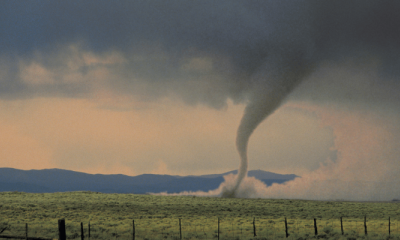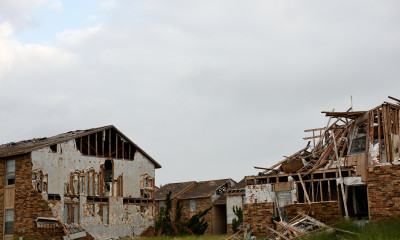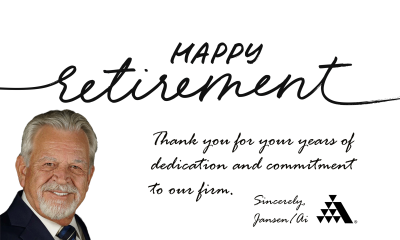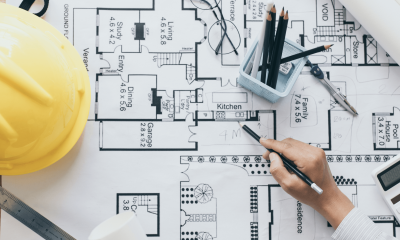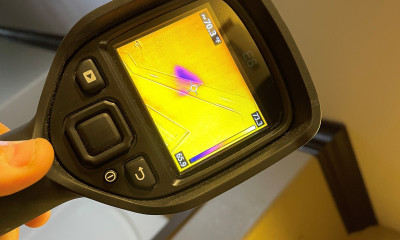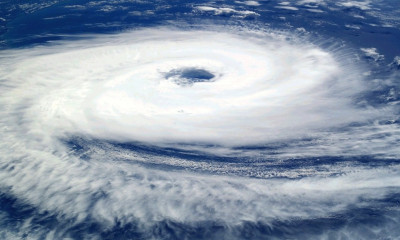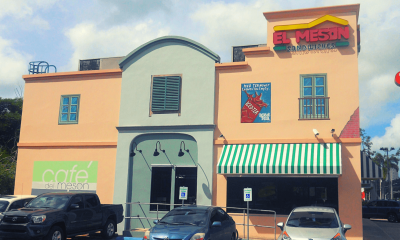7 Steps Business Owners Can Take Post-Hurricane Harvey to Improve Their Insurance Claim
7 Steps Business Owners Can Take Post-Hurricane Harvey to Improve Their Insurance Claim
Hurricane Harvey is expected to make landfall on the Texas Coast this evening and could cause “life-threatening and devastating flooding near the coast due to heavy rainfall and storm surge,” according to the National Oceanic and Atmospheric Administration’s National Hurricane Center (NHC). The NHC’s meteorologists are predicting catastrophic damage to areas along its path and with wind speeds projected up to 156 mph, this storm could reach a Category 4 on the Saffir-Simpson hurricane wind scale.
This news understandably has many business owners in Texas and Louisiana worried not only about safety issues but also about the security of their business properties.
Jansen/Adjusters International’s Principal & Executive General Adjuster, Luis Esteves notes that managing a commercial property damage insurance claim resulting from a hurricane can be an enormous undertaking due to its complexity. Hurricanes bring both wind damage and water damage as well as the need to decipher not only which came first but also which one actually caused the resulting property damage.
We hope that this storm is downgraded and does not cause the widespread devastation that similar past storms have. A hurricane and the accompanying flooding are first and foremost safety concerns so everyone in the area needs to be on alert and heed all warnings from local and state officials. The danger of being injured or worse is real so please do not underestimate the power of these storms. Property damage is a secondary concern and can be dealt with once your employees and loved ones are safe.
Luis R. Esteves
Principal & Executive General Adjuster at Texas-based Jansen/Adjusters International
Post-hurricane steps business owners can take to improve their insurance claim:
1. Protect your property from further damage.
It’s your responsibility to perform emergency work such as putting up tarps, removing wet drywall and carpeting to prevent mold, boarding up openings, installing fencing where necessary, to protect your belongings, and keep others from getting hurt.
2. Beware of contractors asking you to sign a contract for non-emergency services.
Ideally, you should not hire a contractor to rebuild your damaged property until you have agreed on a repair/replacement scope of damage and an estimate of pricing with your insurance company; then you will know how much you have to spend on reconstruction.
3. Document the damage.
Photograph or videotape the scene, including the "debris pile," before you begin any cleanup efforts. When estimating damages do not rely solely on your historical records - instead, secure replacement cost estimates.
4. Request a complete copy of your insurance policy.
Read and make sure you understand your rights and obligations under your insurance policy before entering into any serious discussions or negotiations with your carrier. Seek out a professional to help you understand what your policy actually covers and just as important,
what it excludes.
5. Document all your activities and expenses.
Keep a log of all activities and save all receipts including those for property replacement and extra expenses. This will provide the documentation a disaster recovery professional requires to
present expenses to your carrier, and you will know which expenses will be reimbursed as you rebuild.
6. Make decisions that are best for the survival of your business.
Policyholders often expect the insurance company to tell them what to do to save their business. Insurance company adjusters are simply auditors of your property insurance claim. Only you know your business and what's best for your recovery.
7. Hire your own experts.
The insurance adjuster sent by your carrier to evaluate the damages is working exclusively for the insurance company, not for you. It's your responsibility to document and submit your claim. Make sure you have someone on your side who knows the insurance claims process to ensure a full, fair and expedited settlement — while you concentrate on maintaining your
operations, not on claim details. Understand that your claim will have to be verified.
Esteves notes that although it might never be possible to be 100% prepared for any and all types of hurricane damage, by planning ahead, working with qualified experts, and following the tips above, business owners will have a much better chance at thriving financially after most major property losses.
“We understand the extreme strain that communities, businesses and local residents can face due to a hurricane’s devastating power and force. Our experts will be standing ready to assist business owners across our home state of Texas and our neighboring state of Louisiana with the entire property insurance claim and recovery process,” said Esteves.
Jansen/Adjusters International’s public adjusters can help you recover from severe property damage. Visit the contact us page here or call 800.992.7771.
For additional information, visit:
- "The Four Most Common Types of Property Damage After a Hurricane"
- Property Insurance Roundtable podcast "Hurricanes and Windstorm Coverage"
- "Why Business Owners Should Use a Public Adjuster"


